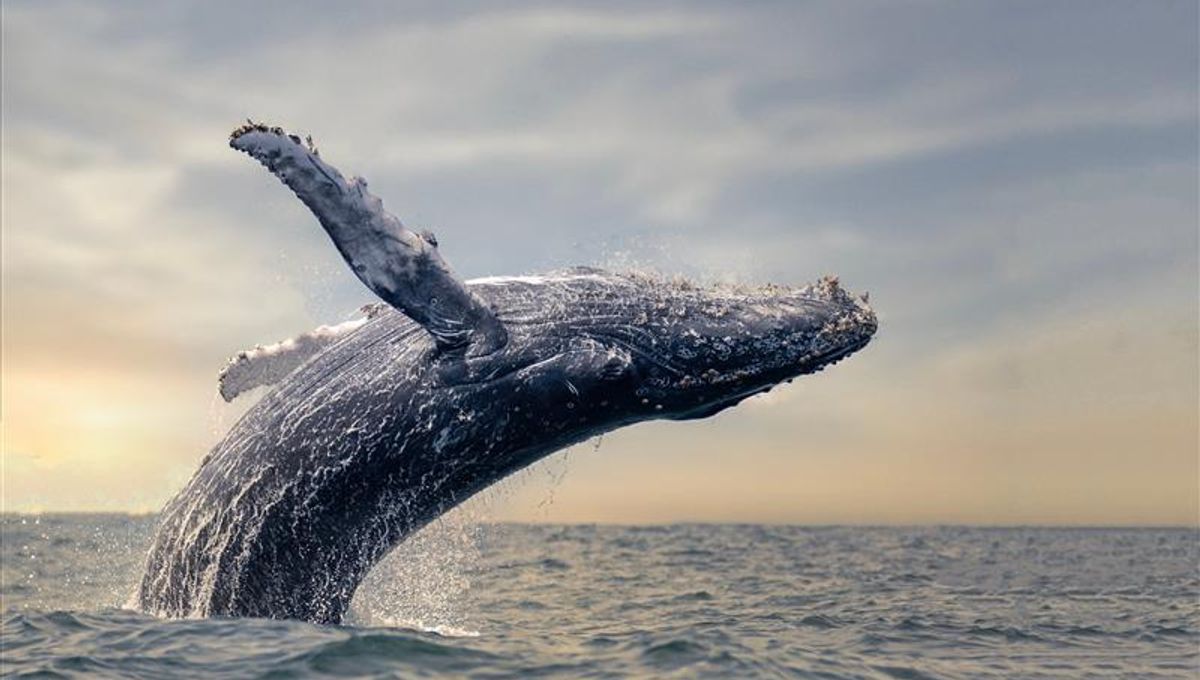
The former head of the International Whaling Commission (IWC), Peter Bridgewater, believes the organization has become a “zombie” institution that should be disbanded, along with any other wildlife protection conventions that complete their work.
The IWC was formed in 1946 when the International Commission for the Regulation of Whaling (ICRW) was signed. This was the first-ever global convention designed to address a threat to wildlife. It came as a result of unsustainable whaling practices that, throughout the first half of the 20th century, killed tens of thousands of whales each year to harvest oil used for fuel.
The creation of the IWC made significant improvements in a short period of time. It managed “global whale populations and [implemented] a moratorium on commercial whaling in 1985”, Bridgewater explained in a comment article published in Nature earlier this month.
This, he and other influential conservationists say, was “laudable” but “these achievements lie four decades in the past.”
That is not to say whale populations have rebounded so much that the creatures don’t require protection anymore. In the years since the moratorium, the authors write, the convention has been ineffective at helping conserve “the great whales” – which include gray, humpback, right, sperm, bowhead, and minke whales – and it has failed to encourage the sustainable harvesting of their populations.
Instead, IWC meetings have stagnated and become characterized by acrimony between member states, they say. They argue that the Commission should be prepared to disband, as other bodies, like the Convention on International Trade in Endangered Species of Wild Fauna and Flora (CITES) could take over. CITES regulates the international trade of endangered wildlife and all whales are covered by it already.
“Some people might argue that letting countries regulate and manage their own whaling in their own waters could result in a resurgence of large-scale commercial whaling. We think that this is extremely unlikely, not least because of the lack of demand for whale products (oil and meat) and changing attitudes around wildlife. What’s more, several other conventions can provide protection against such a scenario,” Bridgewater and colleagues wrote.
“By exiting with dignity, the IWC would set a powerful example for the international environmental community.”
Today, only three countries practice whaling: Japan, Norway, and Iceland. These nations only practice whaling in their own exclusive economic zone, and only on species whose populations are currently stable, the authors explain.
However, the article’s authors fail to address the fact that two of the three countries continue to increase their quotas for whale meat on an annual basis despite the evidence of decreasing demand for it. For instance, the Norwegian government has set that whalers can kill 1,157 minke whales this year, which is 157 more than last year. Similarly, Japan’s Fisheries Agency is allowing Kyodo Senpaku of Tokyo, to kill as many as 59 fin whales this year, in addition to its existing annual quota.
In Iceland, the government has issued a new license for the country’s remaining commercial whaling company, but it is only allowed to hunt 128 fin whales, which is less than the 161 whales permitted in 2023.
Despite Bridgewater and his colleague’s views, whales are still being hunted by commercial companies, a situation that still needs to be monitored.
The authors argue that there are many other international bodies that have little impact collectively but are otherwise recipients of millions of dollars each year that could be used differently. For instance, they cite the Montreal Protocol on ozone depletion as one such body that has nearly achieved its goals, the remainder of which could be taken up by the UN Framework Convention on Climate Change. Similarly, the Convention on Biological Diversity could pick up the goals of the Convention on Wetlands, which has been in operation for 53 years.
“Proud legacies and historical achievements are important, but allowing institutions to become zombies serves no one,” Bridgewater and colleagues wrote. “Today, the IWC should celebrate its accomplishments, devolve its final responsibilities, and send a powerful message about the importance of knowing when to stop.”
When it comes to global whale populations, the current situation is markedly different to what it was in the 1980s. Research has shown that the populations of nearly all species of whales have increased. Only the North Atlantic right whale has struggled, due to climate change and fatal collisions with fishing vessels and their nets.
According to the Guardian, a spokesman for the IWC has since responded to the article in Nature and has stressed that the commission continues to address the evolving challenges associated with whale conservation and management.
“These include – but are not limited to – entanglement and bycatch in fishing gear (which is the biggest threat, estimated to kill more than 300,000 cetaceans every year), collisions with vessels, strandings, marine debris, and of course the world-leading and wide-ranging programme of the IWC Scientific Committee, which includes assessments of whale populations around the world.”
The IWC will meet in Lima, Peru, from September 23 to 27 for its next plenary session. During this time, member states will discuss the latest findings from their scientific committees and make plans for future conservation work.
Source Link: Whaling Protection Body Has Served Its Time And Can Be Scrapped, Former Head Says